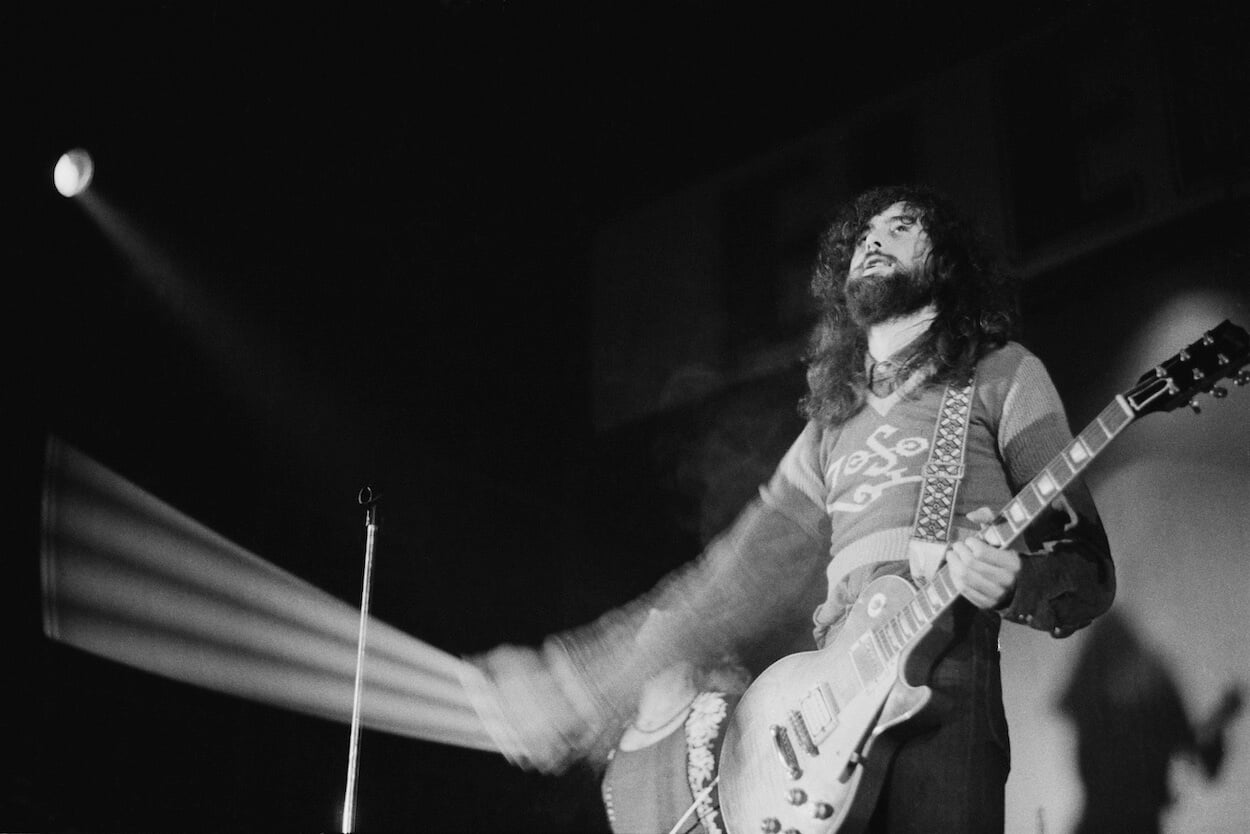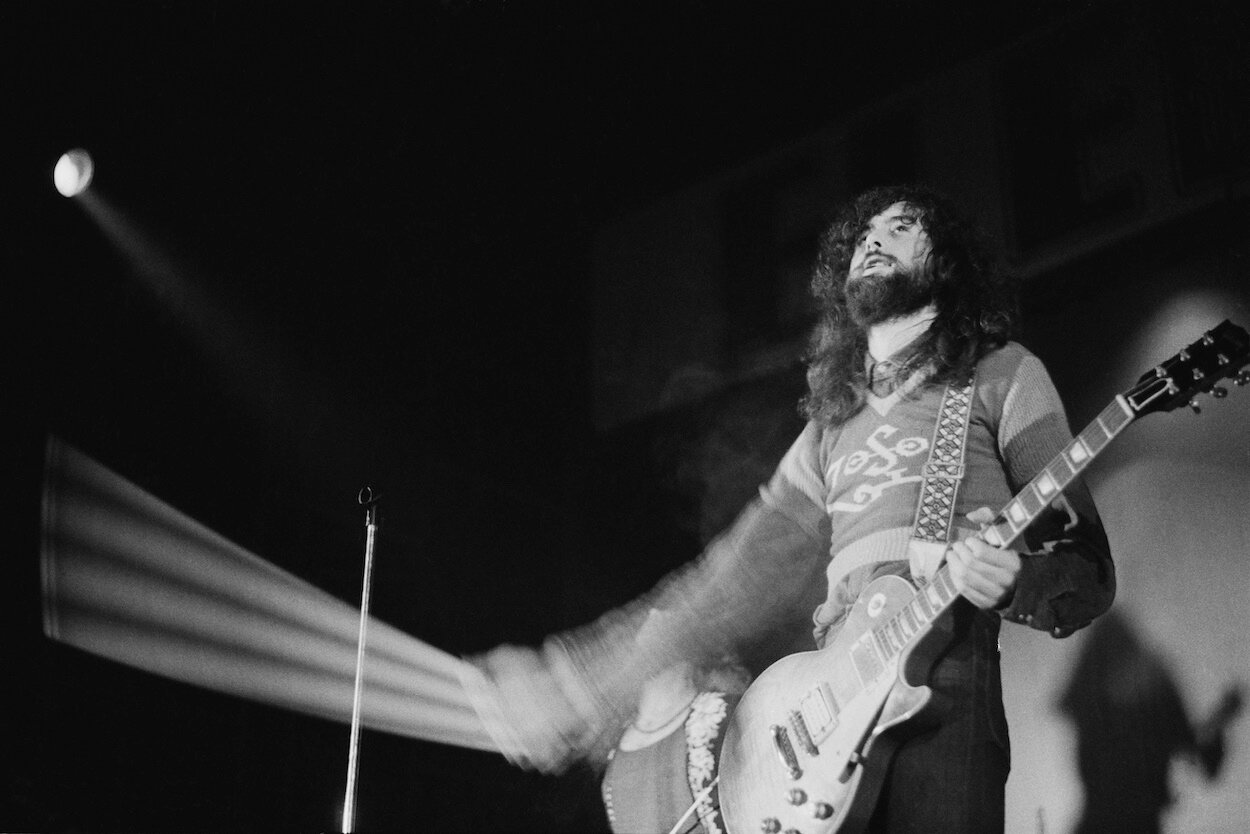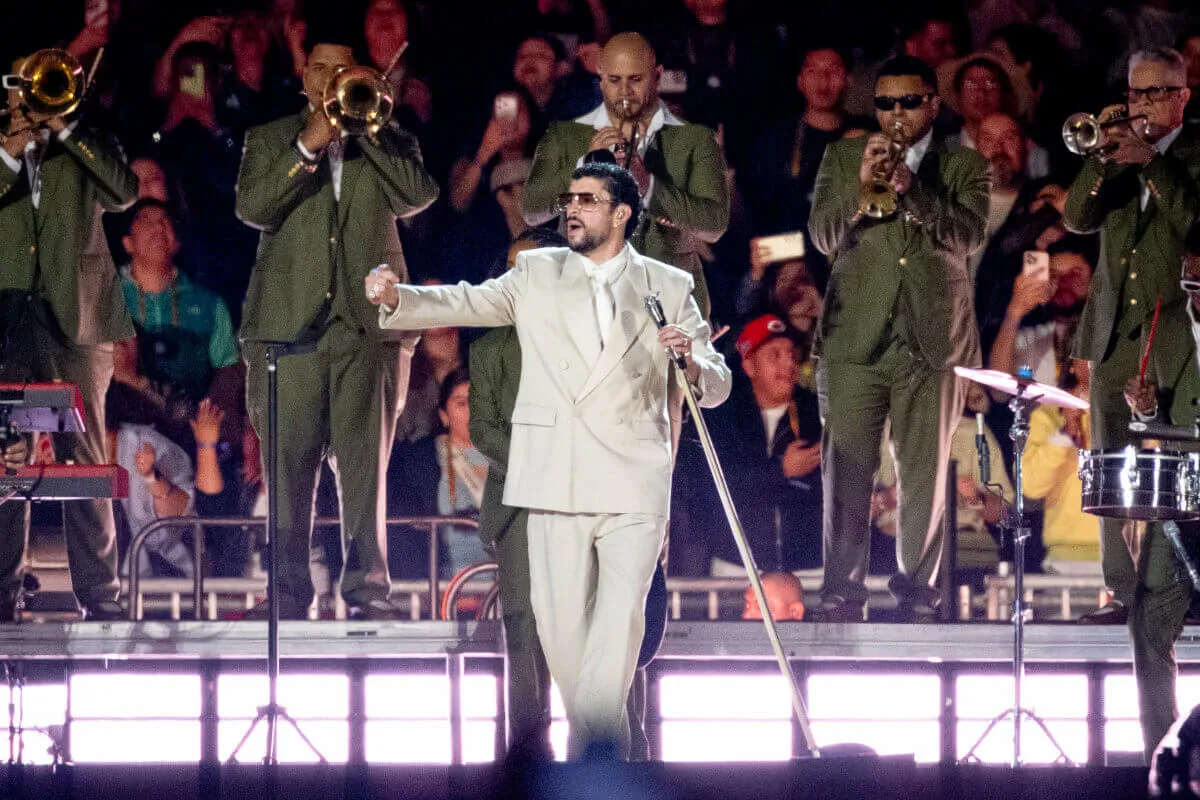
Why Jimmy Page Gave Up Playing Guitar on His Long-Lost ‘Lucifer Rising’ Soundtrack
Jimmy Page didn’t need long to become a standout guitarist. He was an ace session player long before joining the Yardbirds or forming Led Zeppelin. He said his guitar playing improved even more thanks to Led Zeppelin. Yet when he began working on the Lucifer Rising soundtrack, Page gave up playing his guitar altogether, and it made sense.

Jimmy Page gave up playing guitar in favor of Eastern instruments on his long-lost album
Filmmaker Kenneth Anger started working on his film Lucifer Rising long before he met Page. Yet the guitarist agreed to compose music for the movie soon after their first encounter in 1972. Both artists had a shared interest in the occult and author Aleister Crowley.
However, Page expressly avoided using guitars in his soundtrack for the movie, Page told Light & Shade: Conversations With Jimmy Page author Brad Tolinski:
“I employed a variety of instruments and effects. I had a tamboura, which is an Indian instrument that produces a majestic drone. This was one I had brought back from my early travels in India, and it was about five and a half feet tall, and it was a really deep, resonant beast. It was the first thing I wanted to employ on [the track]. Then I had a Buddhist chant that was phased — nothing was quite what it appeared to be. I played some tabla drums, not very well, I might add, but the effect of it was really good. The one thing I wanted to do was avoid using guitar. There was a fraction of guitar right at the end, just a little taste.”
Jimmy Page
Page used Eastern instruments in his compositions to achieve otherworldly sounds that aligned with the mystic content of the movie. (Loosely, it’s about Egyptian gods ushering in an occult age by summoning the angel Lucifer, per IMDb). There was no better place for Page to leave his guitar in the case.
It makes sense Page avoided using guitars on ‘Lucifer Rising’
Page didn’t have much to prove as a guitarist in 1972. He had already put his imprint on blues-based music with the first two Led Zeppelin albums. The band proved they excelled at folk rock on Led Zeppelin III and created a masterpiece with 1971’s Led Zeppelin IV.
Not only that, but Page established himself as an innovator on six (or 12) strings. He developed his bowed guitar technique working on a soundtrack composed by Brian Jones of The Rolling Stones in the mid-1960s. Page employed the method on three Led Zeppelin songs, including two from the first record (“Dazed and Confused” and “How Many More Times”).
The guitarist innovated again while recording “Black Dog” for the fourth record. He plugged his guitar directly into the sound console instead of an amplifier, then put his riffing on three tracks. That’s why Page’s guitar sounded so heavy on the song.
Page’s best guitar solos were must-hear events for music fans in the 1960s and 1970s. (We’d argue they still are). He had nothing else to prove on the instrument when he started recording the soundtrack for Lucifer Rising, so Page gave up his guitar when he made the record. Unfortunately for him, no one heard his work for decades.
Page’s ‘Lucifer Rising’ soundtrack remained unreleased for years
Page and Anger’s collaboration on the movie ended after they had a falling out. The filmmaker tapped convicted murderer and Manson Family associate Bobby Beausoleil to compose the soundtrack. So Page’s work sat in the archives for 40 years until he released his version of the soundtrack as a limited edition in 2012 (per Tolinski).
The first moments of the music make it clear Page didn’t need a guitar to make awe-inspiring music. He elicited haunting drones with his tamboura throughout much of the piece. Page layered eerie synth lines, pounding and elastic tabla beats, ethereal moments that recalled exotic string sections, disturbing wordless chants, and hard breakbeats that predated the electronica of the late 1990s and early 2000s. There’s only a sliver of guitar (starting at roughly 45 minutes).
Jimmy Page purposely gave up playing his guitar on his Lucifer Rising soundtrack. He had nothing left to prove on the instrument, and instead, he proved he could create interesting music without his primary instrument. One listen to the long-lost album (unofficially available on YouTube) demonstrates his skill.
For more on the entertainment world and exclusive interviews, subscribe to Showbiz Cheat Sheet’s YouTube channel.


